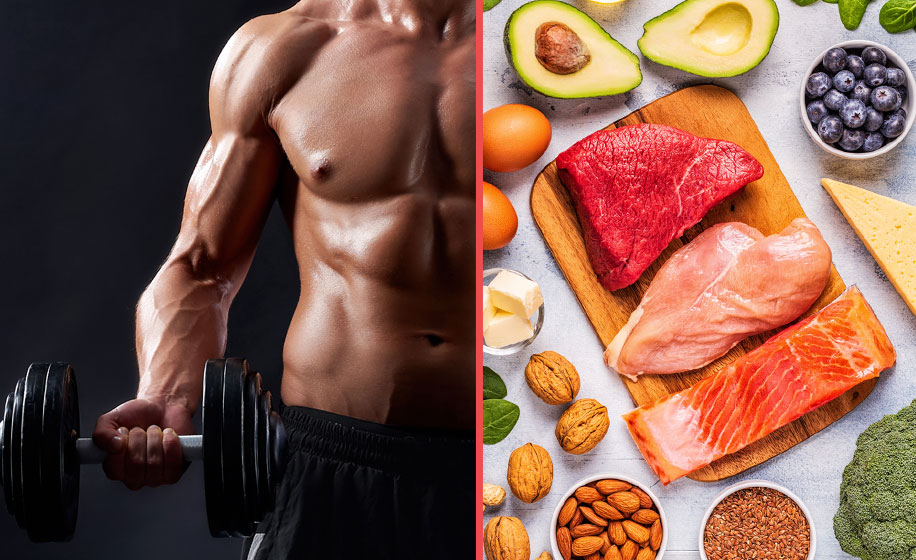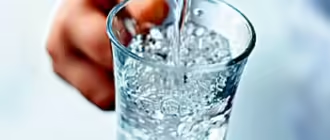The high intensity of training does not yet promise you “six packs” on your stomach, but they will definitely appear if you add the “right” foods to your diet!
Big muscles mean absolutely nothing as long as they are covered with a thick layer of subcutaneous fat. How to fight fat? When you buy groceries at the supermarket, ask yourself the same question every time: “Will this product be good for the cause?” We provide a list of the “right” foods that will help your fight for muscle definition. Every meal you eat should contain at least one product from our list!
Grass-fed beef
To maintain a minimum percentage of body fat, you need to eat less carbohydrates. However, a lack of calories in the diet negatively affects the intensity of training. To compensate for the energy deficit, you need to eat more protein. Grass-fed beef is the healthiest because it contains far more natural omega 3 fats and CLA fats.
Note: Grass-fed, as opposed to feeding with compound feed, increases the content of iron, zinc and B vitamins in beef.
Ingredients: 180 g of beef, 258 calories, 35 g of protein, 0 g of carbohydrates, 12 g of fat, 0 g of fiber.
Kale
Kale contains almost no calories, but it is high in calcium, iron and fiber. In addition, its large leaves help fill you up on a low-calorie diet.
Note: Calcium is involved in the secretion of many hormones and neurotransmitters that promote fat metabolism, i.e. converting them into energy. As for iron, it increases oxygen levels in muscle tissue. This increases the intensity of training and accelerates muscle growth. Fiber binds dietary fats in the intestines and prevents their absorption into the blood and further deposition under the skin.
Ingredients: 1 cup kale, 33 calories, 2 g protein, 7 g carbohydrates, 0 g fat, 1 g fiber.
Chicken eggs
The yolk of an egg contains over 200 mg of cholesterol, however, according to the latest scientific data, consuming even 6-7 eggs a day does not lead to an increase in cholesterol levels in human blood. Meanwhile, cholesterol from chicken eggs serves as the “Raw Material” for the production of testosterone, an anabolic hormone with a powerful “fat burning” effect. Testosterone deficiency always results in excess body fat. According to scientific research, eating eggs for breakfast leads to lower food intake throughout the day.
Note: Choose only high-quality eggs, preferably fortified with omega 3 fats.
Ingredients: 1 large egg 70 calories, 6 g protein, O g carbohydrates, 5 g fat, 0 g fiber.
Porcini mushrooms
They contain a full range of essential amino acids, the deficiency of which science associates with excess weight. In addition, porcini mushrooms contain an exceptionally high amount of vitamin D. Without this vitamin, the secretion of testosterone and the “burning” of fat under the influence of physical activity is impossible.
Note: Vitamin D deficiency reduces immunity, cellular insulin sensitivity, and muscle strength. All this can in no way benefit the fight against subcutaneous fat.
Ingredients: 1 cup porcini mushrooms: 20 calories, 3 g protein, 3 g carbohydrates, 0 g fat, 1 g fiber.
Walnuts
This type of nut is extremely high in omega 3 fats. They help “burn” fat, but also contribute to long-term satiety. It is recommended to add nuts to vegetable salads.
Note: A handful of walnuts is good to eat at night.
Ingredients: 35 g walnuts: 183 calories, 4 g protein, 4 g carbohydrates, 18 g fat, 2 g fiber.
Oatmeal
Oatmeal is a source of carbohydrates, which are the enemy of belly fat. However, at the same time, oatmeal contains a lot of healthy fiber. It comes in two types. One dissolves in water and also becomes glucose, while the other is insoluble. In the intestines, it is saturated with fats and removes them from the body, interfering with absorption. So, oatmeal contains the most insoluble fiber.
Note: The calorie content of oatmeal is slightly lower than indicated on the package, since it does not include insoluble fiber.
Ingredients: 1 cup oatmeal (dry weight) 190 calories, 7 g protein, 32 g carbohydrates, 3.5 g fat, 7 g fiber.
Sweet Potato
Plant carbohydrates that are high in starch should be taken with caution. The fact is that starch, entering the bloodstream, provokes a powerful release of insulin from the pancreas. This blocks fat burning. However, sweet potatoes are an exception. Even in large quantities, sweet potatoes do not affect insulin secretion. This is due to its high water and fiber content. In addition, sweet potatoes are an excellent source of vitamins that stimulate fat burning.
Note: Sweet potatoes are high in magnesium and potassium. These microelements promote better absorption of calcium.
Ingredients: 1 medium sweet potato 112 calories, 2 g protein, 26 g carbohydrates, 0 g fat, 4 g fiber.
Brussels sprouts
The main feature of this variety of cabbage is that it contains an exceptionally high amount of “fat-burning” vitamin C. Moreover, unlike sour tangerines, also champions in vitamin C content, Brussels sprouts do not threaten you with a stomach ulcer.
Note: Freshly frozen cabbage does not lose its beneficial properties.
Ingredients: 1 cup kale, 38 calories, 3 g protein, 8 g carbohydrates, O g fat, 3 g fiber.
Avocado
This unique fruit consists of one third of healthy unsaturated fats, including omega 3 fats. In addition, avocado is extremely rich in vitamin E and group B. When added to food, avocado makes it filling even in small quantities. But the main thing is that avocado fats accelerate the metabolism of fatty acids in the human body.
Note: Despite the high calorie content, avocados contain almost no carbohydrates.
Ingredients: 1 cup avocado 234 calories, 3 g protein, 12 g carbohydrates, 30 g fat, 10 g fiber.
Black beans
These beans are extremely high in protein, high in carbohydrates and fiber. However, the product does not cause abundant insulin secretion, since carbohydrates are represented by polysaccharides. Black beans are a great product for those who want to lose weight quickly. The combination of protein and carbohydrates makes black bean dishes very satisfying. Beans can be added to salads and also used as a side dish for meat dishes.
Note: Beans eaten immediately after training speed up recovery.
Ingredients: 1/2 cup black beans 331 calories, 21 g protein, 60 g carbohydrates, 3 g fat, 14 g fiber.
Hemp Protein
Plant protein isolated from hemp is no more dangerous than jeans made from hemp. In addition to a set of useful amino acids, it contains omega 3 fats and fiber. Thanks to this composition, hemp protein causes stable satiety. Currently, in countries where the sale of hemp protein is already permitted, it is widely used as a dietary product to help lose weight.
Note: Hemp protein is tipped to have a successful future in the fitness industry due to its pleasant taste.
Ingredients: 1 scoop, 150 calories, 22 g protein, 14 g carbohydrates, 20 g fat, 2 g fiber.
Salmon
Fish of the salmon family seem to have been deliberately grown by nature for fitness enthusiasts. Salmon, pink salmon, trout, etc. contain high-quality protein , a lot of omega 3 animal fats, vitamin D and calcium.
Note: Many fish of the salmon family are the subject of cultivation and artificial breeding. At the same time, manufacturers often use dangerous stimulating substances for feeding, which can accumulate in fish meat. Since the athlete must consume salmon on a regular basis, the choice should be made on commercial varieties caught in the Northern Hemisphere.
Ingredients: 180 g salmon 280 calories, 39 g protein, 0 g carbohydrates, 13 g fat, 0 g fiber.
Pear
Pear fruits are extremely healthy because they contain a full range of B vitamins, as well as vitamins C, A and E. Pears contain a lot of microelements, in particular potassium, iron and copper. Pears even contain zinc, which is necessary for testosterone synthesis! Moreover, up to 80% of the volume of the pear comes from organic water, which is absorbed much better than tap water. In addition, pears have a lot of fiber, which is good for our intestines.
Note: Pears are best consumed fresh. Pears in the form of dried fruits are soaked in glycerin to soften them and their taste is “improved” with sugar.
Ingredients: 133 calories, 1 g protein, 36 g carbohydrates, 0 g fat, 7 g fiber.







